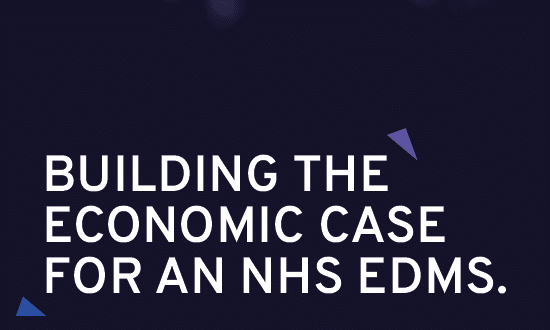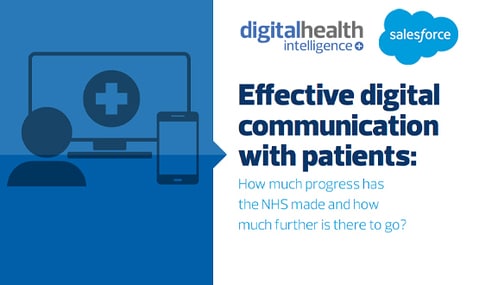Feeling liberated?
- 20 July 2010
Dr Richard Vautrey, deputy chairman of the BMA’s GP committee
The white paper is really quite far reaching and will turn the NHS completely upside down. From a BMA perspective, there is potential in GP commissioning. There are a lot of GPs out there who are ready to take on this role – but only if they have the right support. There is a concern that blame will be shifted to GPs when cuts need to be made.
In an ideal world, the white paper would also place less emphasis on the development of markets and ‘any willing provider’. This is effectively forcing the pace of the commercialisation agenda; it’s not necessary to do that and will potentially be more costly.
In relation to NHS IT, the paper raises more questions than it answers. We don’t know what the coalition fully intends for the National Programme for IT in the NHS or the Summary Care Record. Primary care IT is currently supported by primary care trusts and there has been no mention of how that will work if we move to GP consortia.
The government clearly wants to develop Choose and Book which, when it works and is well supported, is great – but it still doesn’t work well enough and often enough. It’s going to be a difficult task to encourage GPs to use it in a regular way. It’s a good thing that there is a strong focus on providing patients with information, but it’s very easy to create league tables without taking into consideration the local context.
William Lumb, IT clinical lead NHS Cumbria
There appears to be a transfer of liability and responsibility for the NHS to clinicians. In principle, this is ok. Matching financial responsibility to clinical decision making is in my view correct, even if some of my colleagues might struggle with this.
However, with demographic and medical challenges coming that may well swamp the best run consortium, it would appear that the politicians will not now be feeling the heat on the front line.
In terms of NHS IT, the white paper could mean an end to a national approach – and the potential loss of good functionality. The white paper also raises the concerns that there is no current plan regarding informatics, and there is the potential for the fragmentation of support services.
However, it means that true clinical leadership and effective clinical systems will emerge from the backwater of primary care onto the national stage. I think this white paper will prove beneficial in the medium term – but only on the basis of quality informatics supporting quality patient care.
Andy Kinnear, head of Avon IM&T Consortium
The health bill presents a huge opportunity to those in charge of information and technology in primary care trusts. GPs have led the way within the NHS in adopting technology to support their clinical care and business processes and understand the huge efficiencies and benefits ICT can deliver.
I fully expect the GP consortia in my community to look to the current informatics professionals for support in providing the intelligence they need to take on the challenge of GP-led commissioning, manage vital technology infrastructure to support the care they provide, deliver clinical systems to support the management of care, and deliver interoperability between the health silos that currently exist.
For informatics professionals, it offers an opportunity to get far closer to the clinician and patient needs – and I believe that will lead to a different but, in many ways, far more rewarding role.
Dr Neil Paul, Sandbach GP
My instant reaction is excitement. I’ve worked in primary care for five years, and I have often felt frustrated by the lack of power to drive through projects impeded by continual change and new priorities. I feel sorry for anyone who may lose their job; but at the same time I have seen lots of people doing very little and calling themselves managers.
My first worry is imbalance. We need the GP consortia to be able to stand up to foundation trusts. Too many people think a GP is someone who sees sore throats – even politicians have been guilty of this in the past – yet at our best we are central co-ordination managers who see all the flaws in the system and have our patients’ best interests at heart.
With regard to IT, I also think that the focus on making things GP driven will be good, and that we will be much more into delivering real progress than huge programmes. I think the IT system companies need to stop and listen to what GPs need and want, because I think clinical systems will need to change. For example, we are going to need whole area based appointment systems and we are going to have to get live data sharing up and running as soon as possible.
Simon Whitehouse, director of primary care, Central and Eastern Cheshire Primary Care Trust
For me, the challenge in the short to medium term is ensuring that we ‘take people with us’. If we are to be successful we have to articulate a vision that buys-in staff but also our GPs. Too fast and radical, and we risk leaving behind some of our key influencers and some of our knowledge. Too slow and not presenting a vision of change, then we lose the enthusiasm and the early adopters.
With regards to IT, the focus on the visibility of records, starting with GP ones, is interesting. We are going to need to rely on the sharing of information across services and systems very quickly; but I am not sure that the confidence exists at present.
We need to progress the clinical system agenda more rapidly than we have before and find a way of turning the masses of information that we have into useful intelligence on which robust decisions can be made and owned. We have to get it right the first time and then be confident to act on it. I think that the message is one of freedom and autonomy – but based on best available evidence and ownership.
Mike Haynes, independent NHS IT consultant
The white paper means more turmoil for an organisation in constant change. Staff will feel threatened and distracted and their hearts may not be in the job. I don’t believe that GPs have the capability to do what’s being asked of them. Although many are enthusiastic, a lot of them are saying that they are there to be doctors and that they didn’t sign up for this.
I also think the complications around creating a multiplicity of commissioning organisations have been overlooked. Practice Based Commissioning is a highly complex area, and could be made even more so by increasing the number of commissioners.
The paper completely overlooked any discussion of acute providers and NPfIT. I think trusts will be taken over as they will be unable to meet Monitor’s requirements for foundation trusts. The information revolution sounds positive, but there’s no real explanation of what this is. What troubles me is where this data is going to come from? And who is going to put it there? GPs are getting good at electronic patient records, hospitals are absolutely hopeless. I know – from working on the frontline – that data is fundamentally flawed.
Zafar Chaudry, chief information officer, Liverpool Women’s NHS Foundation Trust and Alder Hey Children’s NHS Foundation Trust.
The white paper is what I expected and for trusts it means that investments will have to become more intelligent and patient focused, with technology really driving efficiency and measurable TCO (total cost of ownership) and ROI (return on investment).
NHS IT will have to become more customer focused, delivering business cases that demonstrate that technology really can release cash savings and tangible benefits as opposed to only soft benefits that are difficult to quantify.
What concerns me is that, yes we should be efficient and do more with less, but there comes a point where service levels will drop if staff numbers dwindle extensively.
Colin Sweeney, director of ICT, King’s College Hospital NHS Foundation Trust
We have relationships with PCTs and the way they commission services and that will absolutely change. I suspect things are going to be the way they were in 1997, when we had GP fundholders. It seems that GPs are much more the holders of the purse strings now.
The focus on patient choice also means there likely to be much greater use of Choose and Book. I’d be interested to find out how we are going to get information to patients. There are a lot of things about outcomes in the white paper so, again, we need to collect data and provide data for the public and patients – but how are we going to do that?




